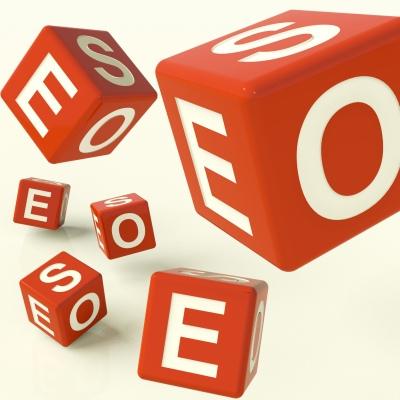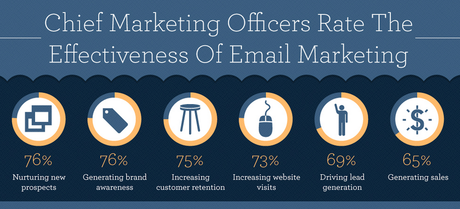 While I have many brilliant friends in the SEO business and with great respect to them, this post starts with a warning. Small businesses would do well to be wary of SEO firms in general (just as they should also be wary of social media experts and content marketing experts, which is part of what we do). For small business owner making decisions about marketing – especially when it comes to the Internet — can be overwhelming. It seems as though everyone and his dog are selling SEO, social media and content marketing services and it’s really hard to know whom to trust.
While I have many brilliant friends in the SEO business and with great respect to them, this post starts with a warning. Small businesses would do well to be wary of SEO firms in general (just as they should also be wary of social media experts and content marketing experts, which is part of what we do). For small business owner making decisions about marketing – especially when it comes to the Internet — can be overwhelming. It seems as though everyone and his dog are selling SEO, social media and content marketing services and it’s really hard to know whom to trust.
Whether your business is a brick and mortar business or you sell primarily online, search engine optimization should be an important part of your strategic marketing plan. Wonder why? Think about how you look for a product or service you want to buy – you use the Internet. We all do. Well, if your website isn’t optimized for search and if you’re not engaging in smart SEO practices, there’s a very good chance that prospective customers won’t find your business. And if your competitors are, you’re in even more trouble. Let’s talk about what’s going on in the world of SEO.
Google’s Algorithm Updates Have Forced Changes to SEO
Google’s algorithm changes over the last year or so have been laser focused on what it deems undesirable SEO practices. In layperson’s terms, it used to be that if you spent enough money and had someone manipulate links enough you could rise to the top of search results and “own” certain keywords. The reality today is that there’s really no true “#1 result in Google.” Search results have gotten exponentially more personalized – for instance when I search for something where I live, in Kansas City, MO and when someone else searches that exact keyword phrase in Raleigh, NC, we might well be served up different results. Google’s changes have really meant just one thing: more of a focus on relevant content that meets a searcher’s needs as quickly and as accurately as possible. The key phrase there is “relevant content” – not links, not hoodoo voodoo SEO stuff, content that is relevant to what the searcher seeks. If you want to know more about the algorithm changes (and there is much more to know), Search Engine Watch’s Jason DeMers breaks it down in an awesome, easy-to-understand way in his post: SEO in 2014: How to Prepare For 2014 Algorithm Updates.
These recent changes have impacted purveyors of SEO services in a big way. Some firms and SEO consultants have adapted and many have not. So if you see a proposal from an SEO firm that includes services like ranking for keywords, article marketing, press release distribution and link-building, know that you need to be on your guard. These are mostly old-school SEO tactics and largely neither recommended nor effective at leveraging the web today. At the very least, you need to ask a lot of questions about what specifically those services will do to drive business for you and how they expect to be able to measure success – and show you that ROI.
Start with Pay Per Click Advertising
We are huge advocates of Pay Per Click (PPC) advertising for small business owners and Google AdWords is the most popular paid search platform. If you’re serious about leveraging the web to grow your business, in most instances, that’s where you should consider starting, instead of with SEO in general. PPC can help you accomplish several things and it’s a cost effective way to help you develop a blueprint for online marketing moving forward. PPC allows you to start small, test and measure, and see what works. It also allows you access to keyword data that otherwise wouldn’t be available to you due to Google’s latest changes. Lastly, PPC can help drive your content marketing and/or social media efforts, when and if you’re read to integrate that into your overall marketing efforts.
And a word of warning to your DIYers out there: with PPC advertising, as in everything, you get what you pay for. If you don’t have the knowledge and expertise needed to create and manage PPC campaigns, chances are good you’ll not see any results or at least the kind of results that will move the needle. To my way of thinking and given the limited budget restrictions of a lot of small businesses, this is potentially too valuable to your business to mess up.
SEO, Social and Content Marketing
At some point, PPC advertising might become too expensive from a cost-per-lead standpoint and/or you’re ready to take your online marketing to another level. That’s when you’ll want to consider perhaps integrating SEO into your efforts, including content marketing and social media. Smart SEO is comprised of a combination of website/content optimization, development of content that serves your audience and leveraging social media channels to distribute that content and drive traffic and, hopefully, targeted leads. SEO, content and social media go together — with good reason. You can write the best posts for your corporate blog in the world, but if you don’t know how to write posts that are optimized to potentially attract your audience and if you don’t have a way of distributing that content to get eyeballs on it, and a plan to drive traffic back to your blog and website, you’re stuck with great content that nobody is reading. You can’t “market” a blog or a podcast or a white paper or case study without having built a network you can rely on to help distribute that content – and that’s where the importance of having a legitimate presence in the social media world comes in. As you work to figure out what your budget allows and what you’re capable of handling internally versus what you need to outsource, know that SEO, content and social media all work hand-in-hand. All impact search engine results and, if your budget allows, you should be aiming toward a plan to integrate all three into your online marketing efforts.
PPC And SEO Are Great, But Don’t Forget Email
PPC and SEO are both important, but there’s something right under the noses of small businesses that they all too often tend to overlook – email. Email remains the most valuable channel – for every stage of your customer’s buying journey, including staying connected after the sale. So, in addition to the things you are doing to leverage the web – like PPC, SEO, social and content marketing – don’t forget email marketing. Email is too effective and too powerful to overlook. Think about it this way — the Internet has a way of commoditizing what we buy and who we buy it from. All too often businesses sell something, online or off, and never do anything after the sale to nurture that customer relationship and to stay in touch with that customer.
As an example, I bought a soccer bench for my kids’ soccer team and it’s the greatest thing ever. I don’t remember where I bought it (other than “on the Internet”) and I don’t remember who I bought it from. Had that vendor used email to connect with me in a personal way after the online purchase, and had that vendor continued to market to me via email since the time of that purchase, not only would the company be more top-of-mind, I’d probably send them business by recommending them to my friends. In addition, if I knew about all the other awesome stuff they sell, I would also probably buy more stuff from them. As it is, I don’t even remember the name of the company I bought it from. Can you see a missed opportunity? Email marketing is effective – very effective, so to not include it in your overall integrated marketing strategy well, it just doesn’t make sense. Need more convincing? Email impacts a customer across every single stage of their buying journey – from attracting a potential customer to converting to a lead to closing the sale to retaining them and continuing to serve and delight them.

Summary
PPC in general and AdWords in particular can be the first step for you to better leverage the web for growth and profitability for your small business. The key to search engine marketing and search engine optimization is an understanding of the importance of leveraging data to make decisions. We’ve included some resources below in case you want to go down this path yourself, but I’ll repeat my earlier admonition about going the DIY path. As a small business owner myself, my job is to focus on doing what it is I do well. As such, I leave the things I don’t do well – like accounting, tax preparation, legal work, etc., to the pros. I feel the same way about SEO and SEM services – this is not the area to experiment, and it’s the last thing I would ever attempt to do myself — it’s a place to budget and spend money wisely and get the results you’re looking for.
Inc.: 6 Habits of Highly Effective AdWords Advertisers
Hubspot: The Worst PPC Mistakes Beginners Make (and How to Avoid Them)
Small Business Trends: 5 Small Business PPC Tips
Bruce Clay: A Beginner’s Four Step Guide to PPC
The MOZ Blog: Harmonising SEO and PPC – a Practical Guide
photo credit: SEOPlanter via photopin cc
Email Effectiveness Image via Vocus
Small Businesses and SEO: What You Need to Know is a post from: V3 Kansas City Integrated Marketing and Social Media Agency

